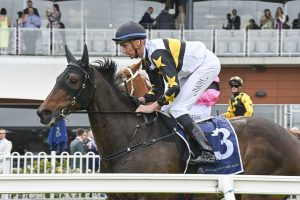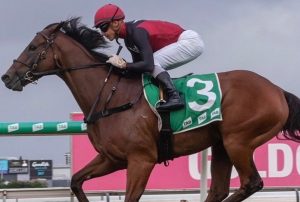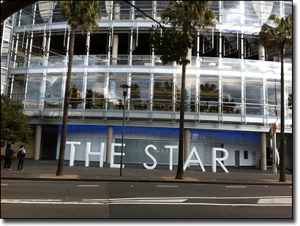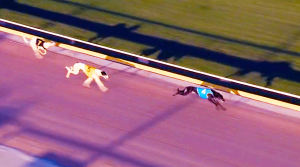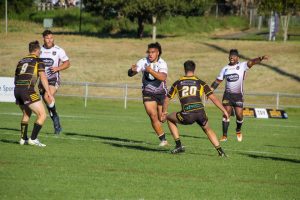 REFORM for the gambling industry could be on the cards with one of Victoria Police’s top cops calling for an over haul to help tackle criminals using off shore betting agencies to launder their money by fixing events.
REFORM for the gambling industry could be on the cards with one of Victoria Police’s top cops calling for an over haul to help tackle criminals using off shore betting agencies to launder their money by fixing events.
In a special report, Melbourne’s Sunday Herald Sun revealed police fear organised crime is permeating through the betting industry, which attacks the integrity of sporting events in the country.
And Victoria Police Assistant Commissioner for intelligence and covert support Neil Paterson sensationally revealed that police believe some legitimate bookmakers in the country ran illegal off shore sites, and police believe match fixing was “the fastest-growing organised crime market”.
“Drugs is already a dedicated organised crime market,” Paterson said.
“There are many such markets.
“The fastest growing organised crime market is match fixing.”
He told the Sunday Herald Sun police had their hands tied when trying to probe off shore betting, unlike in Australia, where they can keep tabs on betting and trends with the country’s bookmakers.
“What we get very little view over is the unregulated international betting markets, and it’s those operators that are the major corrupting influence over sport and racing in Australia,” Mr Paterson said.
Former New South Wales Premier Barry O’Farrell is currently probing the issue through a three month Federal fact finding mission entitled the Review of Internet Gambling Laws.
And Paterson told the paper that Victoria Police had made a submission to the review, which was brought about by concerns from Social Services Minister Scott Morrison over the revelation that some 60 per cent of the country’s online gambling industry was going off shore, with over 2000 websites that Australia was powerless to regulate.
The force wants in play betting to be better regulated online and the O’Farrell review is widely tipped to recommend the ban on it be lifted.
Presently, to place a live bet on a sporting event other than horse racing in Australia, punters must phone in their bets, creating an easily traceable paper trail.
“In play betting is a corrupting influence on sport and racing,” Paterson said.
“What we do know is prohibition doesn’t work.
“It is often better to regulate and get a view over something than to prohibit.”
It’s hard to understand why they would take the risk, but Paterson said some of the corporate bookmakers – who operate legitimate businesses within Australia – had also taken to setting up operations overseas.
“They target the Australian market as well,” he said.
More sensational claims emerged from the Herald Sun investigation, with the paper revealing it believed crime who had been suspected of horse racing corruption held accounts with off shore bookies.
The crims use these offshore betting agencies – many based in the Philippines’ famed Cagayan Province, where traditional law does not apply – to move millions of dollars, away from the prying eyes of Australia’s officialdom.
There are four key bookmakers in the Philippines that operate outside of the law — AAStar, Maxbet, Citibet and SBOBet — that turn over some $2 billion per week.
These bookmakers can offer superior odds, because they are not subjected to tax or licensing or product fees to the sports they provide markets on.
There is no regulation, making it perfect for dodgy dealings – and near on impossible for police to probe.
If they were allowed to inspect these offshore dealings, Paterson believes it could expose when races or sports have been fixed.
“We highly suspect they are linked in with some major global organised crime figures,” Paterson said.
The crims have to go off shore for their dodgy dealings, because Australia has such tight betting restrictions and, due to the powerful integrity systems put in place by local book makers, any larger bets are flagged and can be investigated by police.
Australia’s peak body for sports, the International Centre for Sports Security, agrees in play bets should be allowed in the country.
But it wants it well regulated: “The strong preference of the sports is that all betting on their sports takes place in a regulated environment where they are able to put in place mechanisms that enable them to react to suspicious, illegal or corrupt practices,” its submission, written by Malcolm Speed, states.
The body says some $140 billion is laundered through sports betting globally each year, with much of it going unchecked because of difficulty with regulation across borders.
The old chestnut of sports figures mingling with shady characters was also put to Mr Paterson, who questioned the wisdom of athletes, like AFL footballers, making acquaintance with those known to police.
He said it was “a worry” when these instances occurred and could arise suspicions of match fixing.
“The AFL has a very strong integrity program,” he said.
“A number of clubs have strong integrity programs now.
“It is always concerning when we see high profile sporting people associating with known organised crime entities.
“You really start to question why the association exists.
“It raises that question mark over the legitimacy and what occurs in the relationship after that point in time, so even if it is just a perception issue, that’s a significant concern.
“We’re a sporting country, Melbourne likes to think of itself as the sporting capital of Australia if not the world.
“Once you start to undermine people’s enjoyment in sport that’s a significant issue for us.”
The paper revealed Harness Racing Victoria had employed former Victoria Police detective Brent Fisher to head up its investigations team, in the wake of the suspension of well known figures Shayne and Greg Cramp over race fixing.
The tenacious investigator will have a handy tool that allows investigators to pull messages and call logs from phones it seizes during its investigations.
The body’s integrity boss Andy Rogers said another investigator would be employed and HRV would continue its quest to stamp out dirty dealings in the industry.
The Cramps were each suspended for 12 years after being found to be corrupt.
“The Cramp situation is a good example of what can be achieved through sporting authorities working closely together with Victoria Police,” Mr Rogers said.
“The message is we have never been better placed to detect people doing the wrong thing.
“It’s critically important.
“Anyone who does not share this objective is not welcome.
“If people don’t have confidence in the product, they won’t bet on it.”
O’Farrell’s probe is expected to be complete in the next week, with recommendations given to the Federal Government by December 18.

